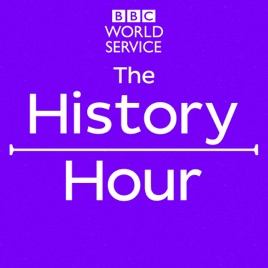
Advertise on podcast: The History Hour
Rating
4.3 from
Country
This podcast has
300 episodes
Language
Publisher
Explicit
No
Date created
2013/04/11
Average duration
52 min.
Release period
7 days
Description
A compilation of the latest Witness History programmes.
Social media
Check The History Hour social media presence
Podcast episodes
Check latest episodes from The History Hour podcast
Skiing and two-headed dogs
2024/02/24
Max Pearson presents a collection of this week’s Witness History episodes from the BBC World Service. We hear about the famous ski resort, Whistler Blackcomb.
In 2003, the venue won its bid to host the Winter Olympic Games for the first time. Hugh Smythe, known as one of the ‘founding fathers’ of Whistler, has been sharing his memories of the mountain. We also have former Winter Olympian and BBC presenter, Chemmy Alcott, to walk us through the long history of skiing.
Plus, how the tiny island nation of American Samoa suffered the worst defeat ever in international football.
Also, the shocking creation of a two-headed dog by a Soviet scientist.
The murder of transgender woman in Honduras during a military coup in 2009.
And, a long-running dispute over the final resting place of Christopher Columbus’ ashes.
Contributors:
Hugh Smythe — One of the ‘founding fathers’ of Whistler.
Chemmy Alcott — Former Winter Olympian and TV presenter.
Nicky Salapu—American Samoa goalkeeper.
Igor Konstantinov — Consultant cardiothoracic surgeon.
Claudia Spelman — LGBT activist.
Angelita Baeyens — Human rights lawyer.
Samuel Bisono — Tour guide and historian.
(Photo: Whistler Blackcomb ski resort. Credit: James MacDonald/Bloomberg via Getty Images)
more
Letters to Juliet and Saint Valentine’s traditions
2024/02/17
Max Pearson presents a collection of this week’s Witness History episodes from the BBC World Service.
We hear about the Juliet Club in Verona, Italy. The club has been replying to mail addressed to Shakespeare’s tragic heroine, Juliet since the early 1990s.
Professor Lisa Bitel talks about the traditions of Valentine’s Day.
Plus, how the small Irish town of Gort became known as ‘Little Brazil’ because it's home to so many Brazilians. The World War Two escape line that fooled the Nazis and the stadium disaster that shocked Egypt.
And the story of the food supplement used by soldiers during the Nigerian civil war that became a drink enjoyed in more than 70 countries around the world.
Contributors:
Giovanna Tamassia - daughter of Giulio Tamassia, one of the founders of the Juliet Club.
Professor Lisa Bitel - Professor of History & Religion at the University of Southern California, USA.
Lucimeire Trindade – resident of Gort, Ireland.
Keith Janes – son of captured a British soldier.
Christine Lepers – daughter of a French resistance fighter.
Mahmoud Al-Khawaga – former footballer with Zamalek.
Peter Rasmussen – creator of the drink Supermalt.
(Photo: Giovanna Tamassia from the Juliet Club. Credit: Leonello Bertolucci/Getty Images)
more
Inspirational black women
2024/02/10
Max Pearson presents a collection of this week’s Witness History episodes from the BBC World Service telling stories about inspirational black women.
In 1973, the Battle of Versailles pit up-and-coming American designers using black models against the more traditional French. We hear from Bethann Hardison, one of those black models, about how the capital of couture, Paris, became the stage for this defining moment in the history of fashion.
Professor Adrienne Jones, a fashion expert at the Pratt Insitute in New York, explains the cultural significance of the event, and what changed in the world of fashion afterwards.
Plus, the story of the UK’s first luxury Afro-Caribbean hair salon, Splinters, which opened as recently as the 1980s. Charlotte Mensah, known as the ‘Queen of the ‘fro’, recalls what it was like to work there. Part of her story includes an account racial bullying.
Also, archive interviews tell the story of how Rosa Parks defied racist segregation laws in the United States. It contains outdated and offensive language.
We hear how a Nigerian lawyer took on the country’s Sharia courts to overturn a death sentence.
And the tragic story of Lucha Reyes, one of Peru’s most beloved singers.
Contributors:
Bethann Hardison- a model who competed in the Battle of Versailles.
Prof Adrienne Jones- from the Pratt Institute in New York.
Hauwa Ibrahim- one of the first female lawyers from northern Nigeria.
Polo Bances- saxophonist who played alongside Lucha Reyes.
(Photo: Bethann Hardison and Armina Warsuma arriving in France. Credit: Photo by Michel Maurou/Reginald Gray/WWD/Penske Media via Getty Images)
more
Internet cafes and Doomsday seeds
2024/02/03
Max Pearson presents a collection of this week’s Witness History episodes from the BBC World Service.
We hear about Cyberia - the first commercial internet café which opened in London in 1994. Director of the Oxford Internet Institute at the University of Oxford, Professor Vicki Nash, talks us through other notable landmarks in the internet’s history. Plus how the Covid N95 mask was invented by a scientist from Taiwan in 1992.
Also how Brazilian theologian Leonardo Boff was punished for his writing on liberation theology. Staying with Brazil, we hear how poor rural workers occupied land owned by the rich, resulting in violent clashes in 1980.
And the world's first global seed vault, buried deep inside a mountain on an Arctic island.
Contributors:
Eva Pascoe – a founder of Cyberia internet café
Prof Vicki Nash – Director of the Oxford Internet Institute at the University of Oxford
Peter Tsai – inventor of N95 mask
Leonardo Boff – Brazilian theologian
Maria Salete Campigotto – Landless Workers Movement protestor
Dr Cary Fowler – founder of Doomsday seed vault
(Photo: People using Cyberia in 1994. Credit: Mathieu Polak/Sygma/Sygma via Getty Images)
more
Traitors and treachery
2024/01/27
Max Pearson presents a collection of this week's Witness History episodes from the BBC World Service all about figures branded as traitors.
In 1939 Wang Jingwei, once a national hero in China, signed an agreement with Japanese invaders which made his name synonymous with the word ‘Hanjian’, a traitor to China. But Pan Chia-sheng’s memories of living under Wang Jingwei’s government in Nanjing tell a very different story.
Our guest Ian Crofton, author of Traitors and Turncoats, explains the nuances involved in our historic understanding of traitors.
Also, the fascist Norwegian politician Vidkun Quisling blamed for convincing the German dictator Adolf Hitler to invade Norway in 1940. Norwegian journalist Trude Lorentzen explains the story with an account she recorded from Quisling’s Jewish neighbour, Leif Grusd.
And, the story of the former Broadway showgirl, known as Axis Sally, who broadcast antisemitic Nazi propaganda on German State Radio during World War Two, told through the archives.
Plus, the Polish colonel, Ryszard Kuklinski, code-named 'Jack Strong', who passed Soviet military secrets to the CIA that changed the tide of the Cold War.
And, the Hungarian Sándor Szűcs, famous for playing in the country’s star football team, who was executed in 1951 for trying to defect from the communist regime.
Contributors:
Pan Chia-sheng - on Wang Jingwei.
Ian Crofton - author of Traitors and Turncoats.
Trude Lorentzen - Norwegian journalist on Vidkun Quisling.
Aris Papas - one of the agents who received intelligence from Ryszard Kuklinski.
Erzsi Kovács’ story is told using an archive interview he gave in 2011 to Hungarian journalist Endre Kadarkai on the Arckép programme, on Zuglo TV.
(Photo: Mildred Gillars, known as 'Axis Sally', on trial for treason in 1949. Credit: Corbis via Getty Images)
more
Lady Tarzan and Ibadan Zoo
2024/01/20
Max Pearson presents a collection of this week’s Witness History episodes from the BBC World Service.
We’re going wild for animals this week. We find out how the Ibadan Zoo became one of Nigeria’s biggest tourist attractions during the 1970s. Our guest Harriet Ritvo, professor of history at MIT, looks back across the centuries to reveal the fascination that humans have always had for animals. And more on the environmental campaigner who became known as Lady Tarzan for her fight against illegal logging in the forests of India.
Plus, we hear from a journalist tortured in Iran's notorious Evin Prison in the wake of the 2009 protests against the Islamic regime. Also, why hundreds of thousands of Moroccans were ordered into the Spanish Sahara by their king. And finally, more on the Bolivian president who went on hunger strike to try to save his country.
Contributors:
Peaches Golding - wife of zoologist Bob Golding
Professor Harriet Ritvo – professor of history at MIT
Marcela Siles - daughter of former Bolivian president Hernán Siles Zuazo
Seddik Maaninou - TV cameraman
Francis Gillies – North Africa expert
Maziar Bahari - journalist
Jamuna Tudu – environmentalist nicknamed ‘Lady Tarzan’
(Photo: Imade the gorilla at Ibadan Zoo. Credit: bobgolding.co.uk)
more
The first lesbian couple to get married and World Laughter Day
2024/01/13
Max Pearson presents a collection of this week's Witness History episodes from the BBC World Service.
In 2001, the Netherlands became the first country to legalise gay marriage. Four couples were chosen to take part in a collective wedding at midnight which was broadcast on TV. Hélène Faasen and Anne-Marie Thus talk about the wedding they thought they'd never have.
Our guest Lauren Moss, the LGBT & Identity Correspondent at BBC News tells us about the history of gay marriage.
Also, the man who risked his life to make the audio recordings which blew open one of the biggest corruption scandals in Spain's recent history.
Then we hear the story of the 1970s defection from the Soviet Union of a world-famous ballerina. Plus, the mystery surrounding the fate of the last king of France's son and the man who really does believe that laughter is the best medicine.
Contributors:
Hélène Faasen & Anne-Marie Thus - the first lesbian couple to get married legally.
Lauren Moss - LGBT & Identity Correspondent at BBC News.
José Luis Peñas - the man that made secret recordings that revealed the Gurtel scandal.
Prof Jean Jacques Cassiman - Belgian geneticist.
Deborah Cadbury - historian.
Dr Madan Kataria – founder of World Laughter Day.
(Photo: The couple arrive to be married at the Amsterdam City Hall. Credit: Marcel Antonisse/ANP/AFP via Getty Images)
more
Hindenburg disaster and wingsuits
2024/01/06
Max Pearson presents a collection of this week's Witness History episodes from the BBC World Service. Our guest is Barbara Waibel, author of a book on the Hindenburg and Director of Archives at the Zeppelin Museum in Friedrichshafen, Germany. She tells us about the history of airships.
We begin with some remarkable archive of the Hindenburg airship disaster in 1937. Then British scientist Jonathan Shanklin describes how he discovered the hole in the ozone layer in 1985.
In the second half of the programme we hear from a NASA scientist who worked on the Voyager space probe which took the famous 'Pale Blue Dot' photo of Earth. A physicist from Quebec remembers when a solar flare plunged the Canadian province into darkness. And we hear the exciting and dangerous story of the invention of the wingsuit.
Contributors:
Barbara Waibel - Author and Director of Archives at the Zeppelin Museum in Friedrichshafen, Germany.
Jonathan Shanklin - Scientist who discovered the hole in the ozone layer.
Candice Hansen - NASA scientist.
Aja Hruska - Physicist from Quebec.
Jari Kuosma - Inventor of the commercial wingsuit.
(Photo: Hindenburg airship. Credit: Corbis via Getty Images)
more
Pad Thai, kiwis and the chef Ken Hom
2023/12/30
Max Pearson presents a collection of this week’s Witness History episodes from the BBC World Service.
This week, we look at the disputed history of pad Thai with food writer Chawadee Nualkhair.
We also hear from former fruit exporter Don Turner on why his family changed the name of the Chinese gooseberry to the kiwi fruit.
Our expert guest is food historian, Prof Katarzyna Cwiertka, who highlights other moments in history when food and politics combined.
We also have an interview with Thomas Chatenier, the president of Nutella, about the origins of the chocolate hazelnut spread.
Plus, we talk about the Flavr Savr tomato - the world's first genetically-engineered food.
And finally we hear from Ken Hom, the chef who introduced Chinese cookery to TV audiences.
Contributors:
Chawadee Nualkhair – Thai food writer.
Don Turner – former chief executive of kiwi exporter, Turners and Growers.
Katarzyna Cwiertka - food historian and Professor of Modern Japan Studies at Leiden University in the Netherlands.
Thomas Chatenier - the president of Nutella.
Roger Salquist – former CEO of the biotech company which was responsible for the Flavr Savr tomato.
Ken Hom – Chinese-American chef and author.
(Photo: Pad Thai. Credit: Getty Images)
more
Tsunamis and Caster Semenya
2023/12/23
Max Pearson presents a collection of this week’s Witness History episodes from the BBC World Service.
This week, we hear from Lumepa Hald who survived the devastating tsunami that hit Samoa in 2009 but suffered a tragic loss.
Our expert guest, Prof Tiziana Rossetto, looks back at some of the worst tsunamis in history and how they have shaped our landscapes.
Plus we talk to Caster Semenya, the gold medallist who faced questions over her gender at the 2009 World Championships in Berlin.
There’s also an interview with Peter Greste, one of three Al Jazeera journalists sentenced to seven years in jail in Egypt.
We also look at the mystery surrounding the death of Chilean poet Pablo Neruda with his driver, Manuel Araya.
And finally we talk to singer Dafydd Iwan, the “bad boy of Welsh politics”, who was arrested for defacing an English sign. He wanted official recognition for the Welsh language.
Contributors:
Lumepa Hald – survivor of the tsunami that hit Samoa in 2009.
Tiziana Rossetto - Professor of Earthquake Engineering at University College London, UK.
Caster Semenya – world champion runner who faced questions over her gender.
Peter Greste – journalist sentenced to seven years in prison in Egypt.
Manuel Araya – driver of Chilean poet Pablo Neruda.
Dafydd Iwan – singer who campaigned for official recognition the Welsh language.
(Photo: Devastation at a beach in Samoa after the 2009 tsunami. Credit: Getty Images)
more
Mandela's funeral and Tsar's reburial
2023/12/16
Max Pearson presents a collection of this week's Witness History episodes from the BBC World Service. Our guest is Dr Ongama Mtimka, lecturer in South African politics at the Nelson Mandela University. He tells us about Mandela's life and legacy 10 years on from his death.
We start with with Mandela's daughter, Makaziwe, describing her relationship with her father and planning his funeral. Then, the brother of Emanuela Orlandi describes his lifelong mission to unravel the mystery of her disappearance in Rome in 1983.
The second half of the programme has a Russian flavour. A relative of Tsar Nicholas II describes the murder of the Romanov royal family in 1918. Then a Russian journalist describes attending the Romanov's controversial reburial 80 years later. We finish with one of Russia's greatest poets, Anna Akhmatova.
Contributors:
Dr Ongama Mtimka - Lecturer in South African politics at the Nelson Mandela University.
Dr Phumla Makaziwe Mandela - Nelson Mandela's daughter.
Pietro Orlandi - Emanuela Orlandi's brother.
Olga Romanov - Great niece of Tsar Nicholas II.
Lilia Dubovaya - Journalist who was at the reburial of the Romanovs.
Era Korobova - Art historian and expert on Anna Akhmatova.
(Photo: Nelson Mandela. Credit: Tom Stoddart Archive/Getty Images)
more
Doom and Danish brains
2023/12/09
Max Pearson presents a collection of this week’s Witness History episodes from the BBC World Service.
We hear about two of the most influential computer games of the 1990s with their creators. John Romero was one of the developers of Doom and talks about the concept of a martian military base populated by zombie soldiers. Coder Jan Tian describes how his devotion to working on the football game FIFA 94 landed him in hospital. Our guest, The Guardian newspaper's video games editor Keza MacDonald, looks back on games which had a global impact.
Also how in 1945, 10,000 brains were collected from dead psychiatric patients in Denmark. It is now thought to be the world’s largest brain bank. We also find out how a group of right-wing army officers seized power in Greece in 1967 to stop the election of a social democratic government led by veteran politician George Papandreou.
And 30 years on since the cult French film La Haine was released, its director Mathieu Kassovitz describes how it caught the attention of high profile politicians with its criticism of policing in France.
Contributors:
John Romero – Doom developer
Jan Tian – FIFA 94 coder
Keza MacDonald – video games editor, The Guardian
Martin Wirenfeldt Nielsen – pathologist
George Papandreou Jnr – former Greek Prime Minister
Mathieu Kassovitz – film director
(Photo: Brains stored in plastic buckets at the University of Southern Denmark. Credit: BBC)
more
Podcast reviews
Read The History Hour podcast reviews
wolfie/wolf
2021/10/09
Black boohoo PC stories
Ya we have heard more, poor me boohoo stories. Especially I’m so rich but a victim success story. Enough of the PC radical race theory. Everyone is s...
more
Andrei braescu
2023/03/09
Good history podcast
I enjoy the vast variety of topics brought up by this podcast but I also find myself fed up with the huge amount of episodes/sections in the episodes ...
more
sciencepyar
2022/08/06
LOVE THIS
Always good but the Uganda Asian episode was exceptional
Zee Zarate
2022/02/07
BBC The History Hour
Excellent!
MusashiG
2021/12/18
Great
I always learn something new
Tojolohu
2021/11/24
Communist propaganda
Mao, Stalin, Lenin, Marx, Hagel, etc would be proud of…this is CRT at its best. WOKE
camping crafter
2021/10/17
Original sources
What I appreciate most about this history podcast is the fact that you somehow find original sources who were actually there or family members who wer...
more
jvgreenblatt
2020/08/15
consistently excellent
I can rely upon them for entertaining, educational material delivered in a clear manner. Thanks
Colombia's finest
2020/08/01
Great show
Love this podcast, quick interesting stories. If you wish to pursue more on them that’s up to you.
DKCColorado
2020/08/07
Dull , dull, deadly dull!
An awfully dull podcast. Good for insomnia
Podcast sponsorship advertising
Start advertising on The History Hour & sponsor relevant audience podcasts
You may also like these personal journals Podcasts

4.9
3869
78
Living Fully with Mallory Ervin
Mallory Ervin

4.7
186
211
Skip Intro
Netflix

4.9
1353
149
Unsubscribe Podcast
UnsubscribePodcast
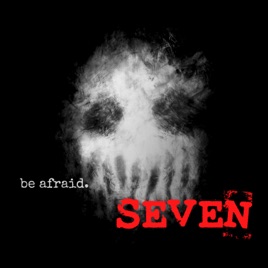
4.1
1590
27
Seven: Disturbing Chronicle Stories of Scary, Paranormal & Horror Tales
Seven: A Disturbing Stories Chronicle of Scary, Paranormal & Horror Tales
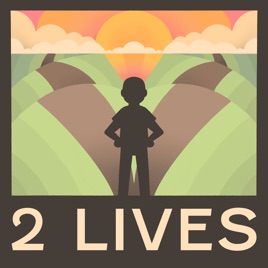
4.2
171
89
2 Lives
Laurel Morales

4.7
434
201
Cast On
Brenda Dayne
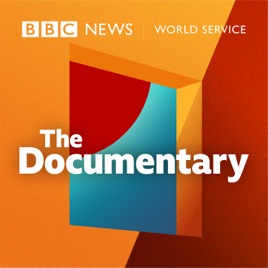
4.4
1539
312
The Documentary Podcast – including the Three Million mini-series
BBC World Service
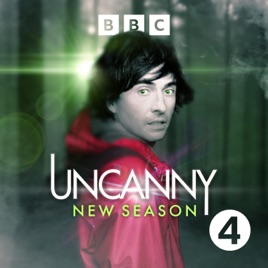
4.7
364
53
Uncanny
BBC Radio 4

4.4
592
100
RV Podcast
Mike Wendland
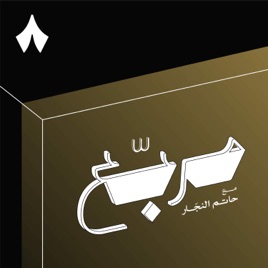
4.6
435
148
بودكاست مربّع | مع حاتم النجار
ثمانية/thmanyah



